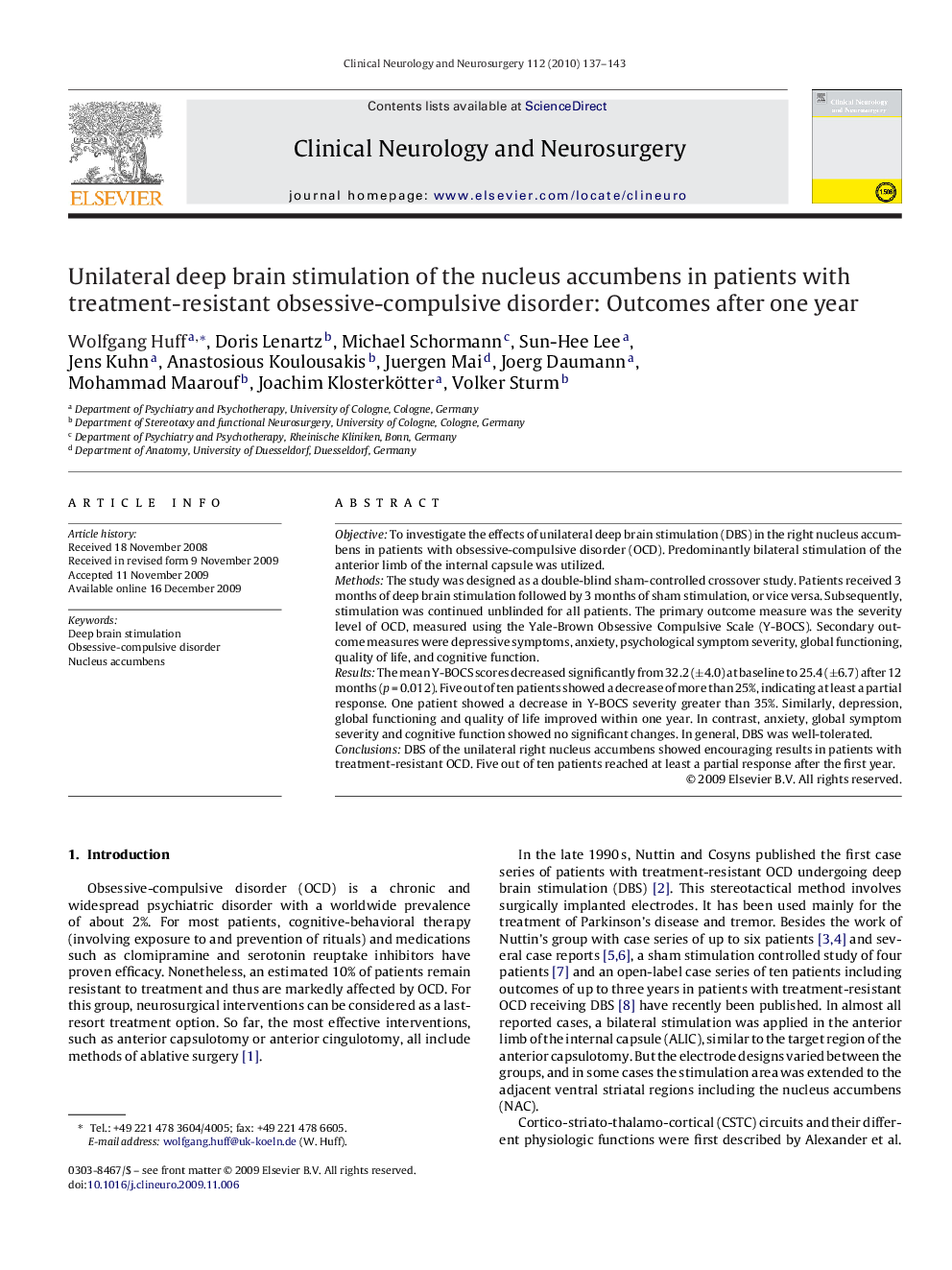| Article ID | Journal | Published Year | Pages | File Type |
|---|---|---|---|---|
| 3041320 | Clinical Neurology and Neurosurgery | 2010 | 7 Pages |
ObjectiveTo investigate the effects of unilateral deep brain stimulation (DBS) in the right nucleus accumbens in patients with obsessive-compulsive disorder (OCD). Predominantly bilateral stimulation of the anterior limb of the internal capsule was utilized.MethodsThe study was designed as a double-blind sham-controlled crossover study. Patients received 3 months of deep brain stimulation followed by 3 months of sham stimulation, or vice versa. Subsequently, stimulation was continued unblinded for all patients. The primary outcome measure was the severity level of OCD, measured using the Yale-Brown Obsessive Compulsive Scale (Y-BOCS). Secondary outcome measures were depressive symptoms, anxiety, psychological symptom severity, global functioning, quality of life, and cognitive function.ResultsThe mean Y-BOCS scores decreased significantly from 32.2 (±4.0) at baseline to 25.4 (±6.7) after 12 months (p = 0.012). Five out of ten patients showed a decrease of more than 25%, indicating at least a partial response. One patient showed a decrease in Y-BOCS severity greater than 35%. Similarly, depression, global functioning and quality of life improved within one year. In contrast, anxiety, global symptom severity and cognitive function showed no significant changes. In general, DBS was well-tolerated.ConclusionsDBS of the unilateral right nucleus accumbens showed encouraging results in patients with treatment-resistant OCD. Five out of ten patients reached at least a partial response after the first year.
